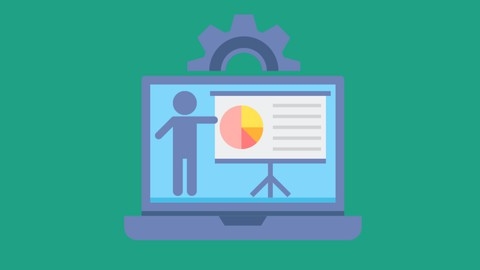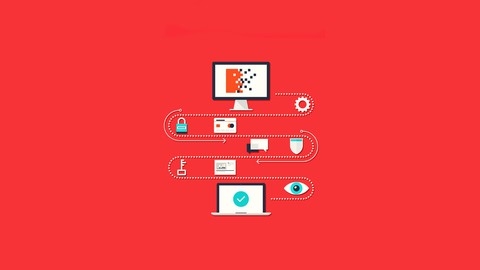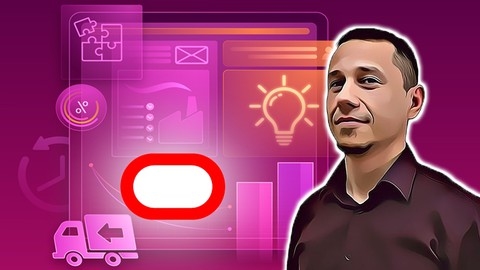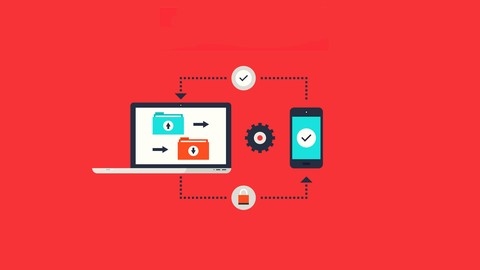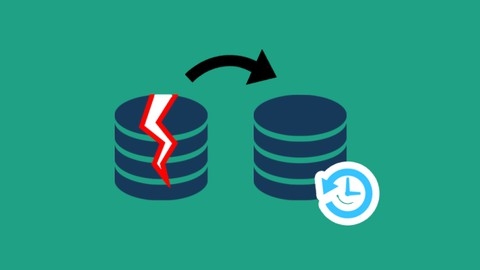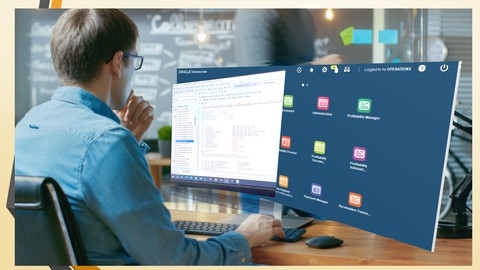Oracle E-Business Suite (EBS) is a comprehensive enterprise resource planning (ERP) system that helps businesses manage their financial, supply chain, human resources, and other critical operations.
Learning EBS can provide you with a valuable skillset for a variety of roles, including system administrator, developer, functional consultant, and more.
Whether you’re looking to enhance your career prospects or simply gain a deeper understanding of how EBS works, a solid foundation in EBS can be invaluable.
Finding the right EBS course on Udemy can be a challenging task, with so many options available.
You’re looking for a course that is comprehensive, engaging, and taught by experts, but also caters to your specific learning style and goals.
For the best Oracle E-Business Suite course overall on Udemy, we recommend Oracle E-Business Suite (R12.1.3) Technical RICEW.
This course is a comprehensive guide to the technical aspects of EBS, covering topics such as SQL and PL/SQL, reporting, interfaces, and conversions, as well as workflow and upgrades.
You’ll learn from experienced instructors who provide real-world examples and practical exercises to help you master the material.
This course is just one of many great options on Udemy.
Keep reading for our complete list of recommendations, covering various learning levels and specific EBS modules, to find the perfect course for your needs.
Oracle E-Business Suite (R12.1.3) Technical RICEW
You’ll start with the foundation, learning about the E-Business architecture and AOL components.
The course dives deep into SQL and PL/SQL, with multiple sessions dedicated to each, ensuring you have a solid grasp of these essential skills.
Moving on, you’ll explore RDF and XML Publisher reports, learning how to create parameter-based reports, group reports, and even Excel template-based reports.
The course also covers advanced topics like XML report generation using GTT and bursting approaches, as well as dynamic column reports and PL/SQL-based reports.
Interfaces and conversions are another key area, with sessions on SQL Loader basics, AR invoice interfaces, GL interfaces, and item master imports.
You’ll also learn about form personalization, sample form development, and creating master-detail forms.
Workflow is a crucial aspect of Oracle E-Business Suite, and this course dedicates multiple sessions to it, ensuring you understand its intricacies.
Additionally, you’ll learn about the latest upgrade strategy for Oracle E-Business Suite, keeping you up-to-date with the latest developments.
Oracle Apps DBA - E-Business Suite Release 12.2
You’ll start by learning the fundamentals of ERP and the architecture behind Oracle’s E-Business Suite.
This includes an in-depth look at the technology stack, file system structure, and the different tiers that make up the application.
From there, you’ll dive into managing the various services and components that keep E-Business Suite running smoothly.
You’ll learn how to start, stop, and monitor services on both 12c and 19c databases.
The course also walks you through installing E-Business Suite 12.2.10 from scratch on an Oracle Linux 7 VM.
A major focus is on core administration tasks like using AD utilities for managing configurations, setting up parallel processing with AD Controller, and automating processes with Autoconfig.
You’ll master profile options, concurrent processing, patching with ADOP and ETCC, and cloning EBS instances.
This course covers all the key DBA skills for E-Business Suite like user/responsibility management, tracing and log files, and changing passwords for components like WebLogic Server.
You’ll gain hands-on experience working with the different Oracle Homes, navigating the technology layers like ATG, and understanding the client, application, and database tiers.
R12i Oracle E Business Suite Fundamentals
The course covers the fundamentals of Oracle’s ERP system, starting with an introduction to navigating the R12i applications.
You’ll learn how to log in, use menus and forms, enter data, and search within forms.
The course also explains the relationship between users, responsibilities, menus, and forms, as well as different data entry sources.
Moving on, you’ll gain an understanding of the Oracle E-Business Suite solution itself.
This includes exploring business scenarios for enterprises and multi-national companies, an overview of ERP systems, and the business process flows and solutions offered by Oracle’s software.
The benefits of the E-Business Suite and its shared entities and integration are also covered.
The syllabus dives into shared entities like suppliers and customers, as well as the overview of business flows and integration within the E-Business Suite.
You’ll learn about installing and upgrading to Release 12.2.3, including the required software for installation and upgrading from Release 12.2.0 to 12.2.2.
The process of downloading software and setting up a stage area is also covered.
Finally, the course touches on the new user interface introduced in Oracle E-Business Suite Release 12.2.3.
Oracle E-Business Suite VM Install and Developer Essentials
You’ll start by setting up a virtual machine environment with VirtualBox and installing all the necessary tools like SQLDeveloper, SSH, and sFTP clients.
The course walks you through importing the EBS Vision 12.2.10 image, configuring it, and accessing various components like the database, WebLogic console, and forms.
You’ll learn how to create custom applications, manage users, responsibilities, and configure profile options.
One key aspect is learning to work with concurrent programs - creating them, adding parameters, and running them from the backend.
The course covers using FNDLOAD for uploading and downloading EBS components like lookups and messages.
You’ll dive into the Oracle Application Framework (OAF) for editing pages using jDeveloper.
Additionally, you’ll explore XML Publisher for creating Excel reports and WebADI for building custom integrations.
The course even touches on Oracle Apex, teaching you to install, configure, and create simple Apex applications that can be called from EBS.
Along the way, you’ll gain insights into workflows, personalizations, debugging, and working with value sets.
The course promises a solid foundation in EBS development, covering a wide range of tools and concepts essential for customizing and extending the E-Business Suite.
R12i Oracle E Business Suite Fundamentals - Advanced
You’ll start by learning how to navigate the R12i applications, use menus and forms, and enter data.
Once comfortable, you’ll explore the business scenario of an enterprise and multi-national company (MNC), gaining insights into how ERP systems like Oracle E-Business Suite streamline processes.
You’ll learn about the suite’s various applications, benefits, and how shared entities facilitate integration across modules.
The course covers core concepts like multi-organization (multi-org) structures, which allow modeling your business within Oracle.
You’ll understand organizational components like business groups, legal entities, operating units, and inventory organizations.
Setting up the multi-org architecture and handling implementation considerations are also discussed.
System administration forms a crucial part of the syllabus.
You’ll learn about application security, function security, data security concepts like role-based access control and self-service approvals.
Managing profile options across hierarchies and implementing other access controls are covered too.
Flexfields, a powerful functionality for configuring data models, are explained in-depth.
You’ll learn about key and descriptive flexfields, value sets, validation types, and defining flexfields in applications.
The course dives into the technical architecture, covering terminology, client and application tiers, and file system structures across releases 12.1 and 12.2.
Installing and upgrading to the latest 12.2.3 version using Rapid Install is also demonstrated.
Finally, you’ll get an overview of Oracle’s modern user interface in 12.2.3, a significant upgrade enhancing usability and productivity.
Oracle E-Business Suite (Apps) R12.2 Disaster Recovery (DR)
You’ll start by learning how to prepare the environment, including setting up the necessary virtual machines (VMs) and configuring the primary database.
From there, you’ll dive into creating and configuring the DR database, as well as the standby database.
One of the key focuses is on the EBS application tier.
You’ll learn how to properly configure it for the DR environment, ensuring seamless operation in case of a disaster.
This is crucial for maintaining business continuity.
The course also covers performing a BCP (Business Continuity Planning) drill, which simulates a disaster scenario.
This hands-on experience will give you invaluable practice in executing a switchover to the DR site and then switching back to the primary site.
Throughout the course, you’ll work with essential components like the DR database, standby database, application tier, and primary database.
You’ll gain practical experience in tasks like preparing the environment, configuring database homes, and managing VMs.
You will learn to set up and manage a robust DR solution, ensuring your organization can quickly recover from any potential disasters or disruptions.
Oracle E-Business Suite Practice Tests - OM, INV, PO
If you’re looking to prepare for Oracle E-Business Suite certification exams in Supply Chain modules like Inventory, Order Management, and Purchasing, this course offers a unique set of practice tests to help you assess your knowledge.
The course includes five different test types: a quick test covering business process flows across OM, INV, and PO modules, as well as three full-length mock exams that mirror the actual 1Z0-519 Inventory Essentials, 1Z0-520 Purchasing Essentials, and 1Z0-521 Order Management Essentials certification exams.
Each mock exam has 80 questions, a 150-minute duration, and requires a 60% passing score.
You’ll also find questions covering Oracle E-Business Suite Fundamentals, which are required for the certification exams.
As a bonus, there’s an additional technical and data models test specific to the OM, INV, and PO modules.
With these practice tests, you can evaluate your understanding of key areas like Order Management, Inventory, Purchasing, and general Supply Chain processes.
By identifying your strengths and weaknesses, you can focus your learning efforts more effectively before attempting the actual certification exams.
The course provides a cost-effective way to test your Oracle E-Business Suite knowledge through a self-paced, practice-based approach.
You’ll gain confidence by practicing with exam-like questions across various Supply Chain modules covered in the R12.1 track.
1Z0-517 Oracle E-Business Suite R12.1 Payables Essentials
This course is an excellent opportunity for anyone looking to enhance their skills in Oracle’s Payables module.
You will start by learning how to navigate the R12 applications efficiently, using menus and keyboard shortcuts.
This lays a solid foundation for working with the various integrated modules.
The course covers crucial concepts like flexfields and Multi-Org, which allow you to manage data effectively across multiple organizations.
You’ll understand how workflows and alerts streamline the payables process, ensuring tasks are completed on time and with proper approvals.
A significant portion is dedicated to the Payables module itself.
You will learn to work with invoices, from setting up supplier invoices to processing expense reports.
Mastering payment terms and running payables accounting reports will be key skills you develop.
By completing the practice test, you’ll gain the skills to excel in your day-to-day work and prepare thoroughly for the 1Z0-517 certification exam.
1Z0-517 - Oracle E-Business Suite R12.1 Payables Essentials
This course prepares you for for the 1Z0-517 Oracle E-Business Suite R12.1 Payables Essentials certification exam.
You’ll get access to 3 full-length mock tests with a total of 135 unique questions covering all the exam topics.
The questions are frequently updated, with the latest batch added in June 2022, ensuring you practice with the most current and relevant content.
Each mock test contains 45 questions designed by subject matter experts to closely mimic the actual exam experience.
After completing a test, you’ll receive a detailed report analyzing your strengths and weaknesses across different areas.
This allows you to identify knowledge gaps and focus your studies accordingly.
The course covers the entire Payables Essentials exam syllabus in-depth.
You’ll learn to navigate Oracle R12 applications, understand shared entities and integration points, and master the fundamentals of Multi-Org setup and access control.
The Procure to Pay process flow, withholding tax calculations, and payments processing are explored in detail.
Additionally, you’ll dive into expense reports, credit cards, transaction taxes, contract financing, supplier management, invoice processing, and the all-important period close activities.
The syllabus also covers core Oracle E-Business Suite concepts like Flexfields, Workflow, and the R12 architecture.
With 100% verified answers and explanations for every question, this course provides a solid foundation for both the theoretical and practical aspects of Oracle Payables.
The mock exams’ unique questions and self-evaluation tools ensure you gain confidence and readiness for the certification.
Oracle E-Business Suite Technical Training
The course starts with an introduction to the Oracle EBS Technical landscape, covering the directory structure to give you a solid foundation.
You’ll then dive into hands-on exercises, creating forms, functions, menus, responsibilities, and users within the Applications Object Library (AOL).
This practical experience is invaluable for understanding the core EBS architecture.
Moving forward, you’ll learn how to open accounting and inventory periods, a crucial step in the procurement-to-pay (P2P) and order-to-cash (O2C) cycles.
These cycles form the backbone of EBS, and the course provides in-depth coverage of both.
The course also covers Oracle Workflow, a powerful tool for automating business processes.
You’ll learn how to install, build, and generate notifications using the Workflow Builder, adding efficiency to your EBS implementation.
Report development is a significant component, with dedicated sections on Oracle Report Builder and BI Publisher.
You’ll create tabular, grouped, and matrix reports using Report Builder, while also mastering pivot and matrix reports with BI Publisher.
These skills are essential for extracting valuable insights from your EBS data.
Throughout the course, you’ll encounter quizzes and hands-on exercises, reinforcing your understanding of the material.


